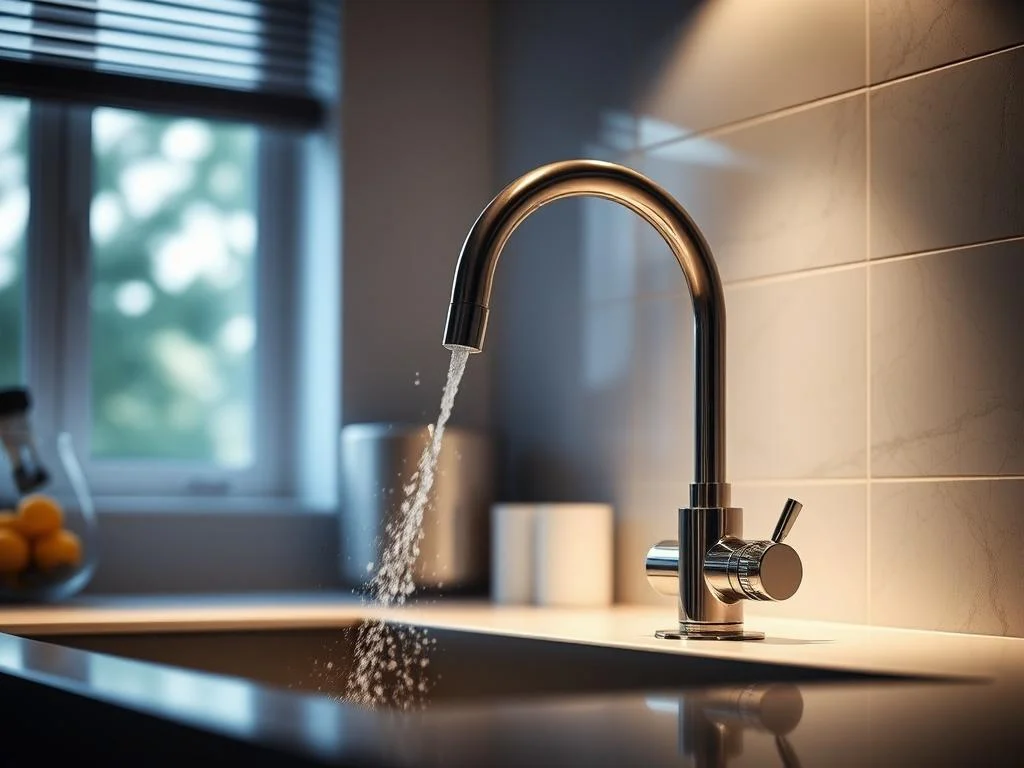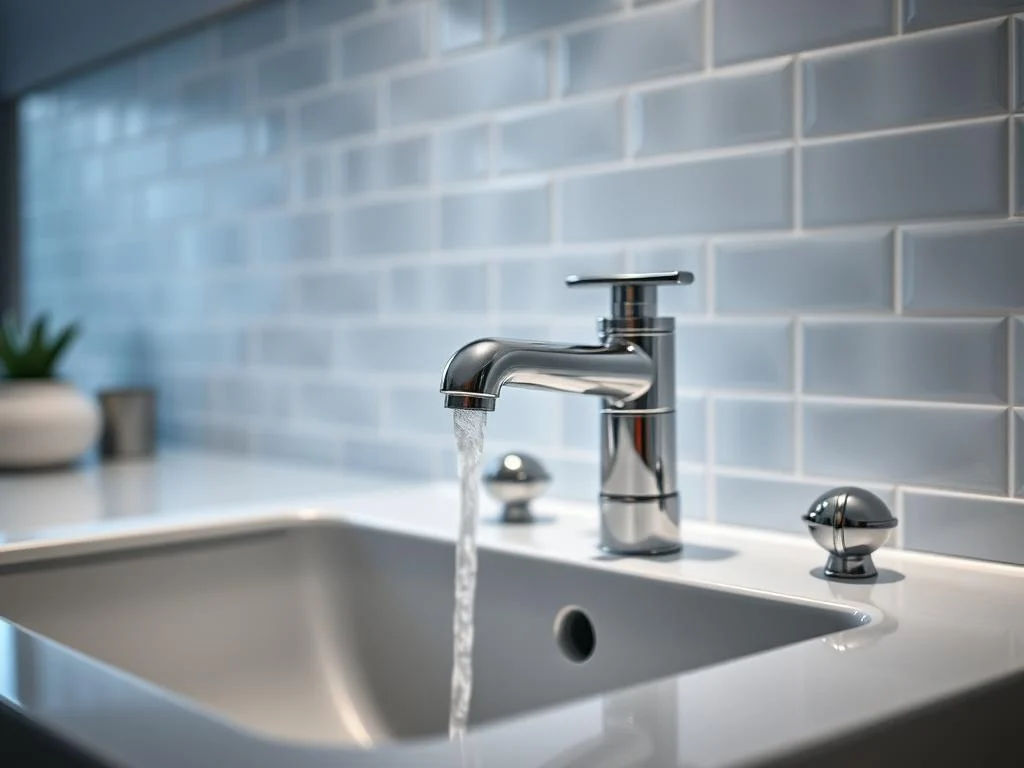
The Difference Between a Kitchen Tap and a Washing Machine Tap: A Quick Guide
Basic Functions of Kitchen Taps
The primary function of a kitchen tap is to provide a controlled and consistent flow of water for various tasks, including washing dishes, rinsing vegetables, and filling pots and pans.
These taps are designed for general-purpose use and typically feature a single lever or two separate handles for controlling water temperature and flow.
Modern kitchen taps often incorporate features like pull-down sprayers, which enhance convenience and cleaning efficiency.
The design prioritizes ease of use and versatility, catering to the diverse needs of a busy kitchen environment.
Consider the style of your kitchen when choosing a tap – sleek and modern, or classic and traditional?
The right tap can elevate the entire look and feel of your kitchen space.
For those seeking a touch of elegance, explore our selection of stunning chandeliers to complement your new kitchen tap.
Basic Functions of Washing Machine Taps
Unlike kitchen taps, washing machine taps, also known as washing machine hose taps, are specifically engineered to supply water to washing machines.
Their primary function is to provide a high-volume, consistent flow of water to fill the washing machine drum.
These taps typically have a larger diameter than kitchen taps to accommodate the higher water volume required for efficient washing.
They often feature a quick-connect fitting to easily attach the washing machine hose.
The design focuses on durability and reliability, as they are subjected to frequent use and the demands of a washing cycle.
A common configuration you’ll find is a 2-in-1 tap, combining a standard tap with a washing machine connection, offering versatility in your laundry setup.
Check out our 2 in 1 Washing Machine Tap + Normal Tap for a convenient solution.
Design and Finish Differences
The design and finish of kitchen and washing machine taps often reflect their intended use and location.
Kitchen taps are available in a wide array of styles, finishes, and materials, including stainless steel, chrome, brushed nickel, and matte black, to complement various kitchen aesthetics.
They often feature intricate designs and decorative elements.
Washing machine taps, on the other hand, prioritize functionality over aesthetics.
They typically have a more utilitarian design with a focus on durability and ease of use.
While finishes are available, they are generally more basic, often featuring chrome or galvanized steel.
The finish choice for a washing machine tap is less critical, as it’s typically located out of sight in the laundry room.
However, choosing a durable finish can still extend the tap’s lifespan and prevent corrosion.
Remember, the overall look of your home is important, and even seemingly small details like taps contribute to the overall ambiance.
Installation Requirements and Compatibility
Installation requirements for kitchen and washing machine taps differ significantly.
Kitchen taps are typically installed on a countertop or sink deck and require a standard plumbing connection.
The installation process is generally straightforward, but it’s recommended to consult a professional plumber if you’re not comfortable with plumbing work.
Washing machine taps require a dedicated water supply line and a connection point near the washing machine.
They often have specific thread sizes and connection types that must be compatible with your washing machine’s inlet hose.
Incorrect installation can lead to leaks and damage to your appliances.
Always double-check the tap installation guide provided with the tap before attempting installation.
If you’re unsure, it’s always best to seek professional assistance to ensure a safe and reliable installation.
Water Pressure and Flow Considerations
Water pressure and flow are crucial considerations when choosing either a kitchen or washing machine tap.
A kitchen tap requires adequate water pressure to provide a consistent and usable flow for washing dishes and other tasks.
Low water pressure can result in a weak stream and reduced cleaning efficiency.
Washing machine taps, on the other hand, require a higher flow rate to quickly fill the washing machine drum.
Insufficient water pressure can significantly extend the washing cycle time.
Consider your home’s water pressure when selecting a tap.
If you experience low water pressure, you may need to consider a tap with a pressure-boosting feature or consult a plumber to address the underlying issue.
Understanding your water pressure kitchen tap needs is key to a smooth operation.
Maintenance, Cleaning, and Longevity
Regular maintenance and cleaning are essential for extending the lifespan of both kitchen and washing machine taps.
Kitchen taps should be cleaned regularly to prevent mineral buildup and limescale deposits, which can affect water flow and appearance.
Washing machine taps are less prone to visible buildup but should still be inspected periodically for leaks and corrosion.
Using a descaling solution can help remove mineral deposits from kitchen taps.
For both types of taps, replacing worn-out washers and O-rings can prevent leaks and maintain optimal performance.
Following these simple faucet maintenance tips will help keep your taps functioning smoothly for years to come.
Proper care ensures your investment lasts.
Cost Comparison and Budget Tips
The cost of kitchen and washing machine taps varies depending on the brand, material, design, and features.
Basic kitchen taps can range from Ksh 2,000 to Ksh 5,000, while more elaborate models with advanced features can cost Ksh 10,000 or more.
Washing machine taps are generally less expensive, typically ranging from Ksh 1,000 to Ksh 3,000.
When budgeting for new taps, consider not only the initial cost but also the potential long-term savings from improved water efficiency and reduced maintenance.
Look for taps with water-saving features, such as aerators and flow restrictors, to minimize water consumption.
At Enan Stores, we offer a wide range of taps to suit various budgets, ensuring you find the perfect solution for your home.
A faucet cost comparison can help you make an informed decision.
Choosing the Best Tap for Your Home
Selecting the best tap for your home requires careful consideration of your specific needs and preferences.
For your kitchen, prioritize style, functionality, and ease of use.
Consider the overall design of your kitchen and choose a tap that complements the existing décor.
For your laundry room, prioritize durability, reliability, and a high flow rate.
Ensure the tap is compatible with your washing machine’s inlet hose.
Don’t hesitate to seek advice from a plumbing professional or visit Enan Stores to explore our wide selection of quality taps.
We’re committed to providing exceptional customer service and helping you find the perfect plumbing fixtures for your home.
Conclusion
Understanding the differences between a kitchen tap and a washing machine tap is crucial for ensuring the efficient and reliable operation of your home’s plumbing system.
By considering factors such as function, design, installation requirements, water pressure, and maintenance, you can make informed decisions when selecting taps for your kitchen and laundry room.
Remember to prioritize quality and durability to maximize the lifespan of your taps and minimize the risk of costly repairs.
For all your plumbing fixture needs, visit Enan Stores, your one-stop shop for quality construction materials and home improvement essentials.
Need assistance? Email us now at info@enanstores.com or give us a call at 0731 451 401.
You can also reach us on WhatsApp at 0731 451 401.
Don’t forget, upgrading your home is an investment, and choosing the right taps is a vital part of that process.
FAQ
- What is the main difference between a kitchen tap and a washing machine tap?
The main difference lies in their function and design. Kitchen taps are for general use with a focus on aesthetics, while washing machine taps are designed for high-volume water delivery to washing machines, prioritizing durability. - Can I use a kitchen tap for my washing machine?
While it might work in a pinch, it’s not recommended. Kitchen taps typically don’t have the flow rate or connection type needed for efficient washing machine operation. - How often should I clean my kitchen tap?
Regular cleaning, ideally once a week, will prevent mineral buildup and maintain optimal water flow. - What is the best material for a durable washing machine tap?
Chrome or galvanized steel are good choices for washing machine taps due to their resistance to corrosion and wear. - Where can I find quality taps for my home?
Visit Enan Stores for a wide selection of quality construction materials and home improvement essentials, including a variety of kitchen and washing machine taps.


Add a review
Your email address will not be published. Required fields are marked *